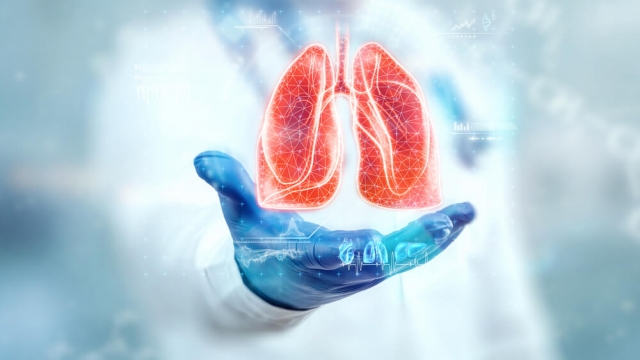If your New Year's resolution is to focus on your health, researchers with the American Lung Association have a pitch: how about being in a lung health study?
Our lungs are in peak health at ages 25–35, and doctors need thousands of volunteers in that age group for a first-of-its-kind millennial lung study.
Antaneal Harris took a spirometry test, measuring how well her lungs are functioning. She's a millennial-aged medical volunteer in the American Lung Association's lung health cohort.
“I was like, Oh, OK, that seems interesting. Let me see what it's all about. Because I was curious, like, how does the lung disease stuff even develop? Like, how do you know you get it?" said Harris.
Her numbers are a set of data among 4,000. Harris's tests will also include a low-dose CT scan, blood draws, and lots of questions over a couple of hours. Researchers will follow up with her throughout the next five years.
“What we are trying to learn by carrying out this study is the range of environmental factors, early life influences, and health behaviors and how those relate to our lung health over time,” said Northwestern Medicine Doctor Mercedes Carnethon.
The American Lung Association says lung cancer cases in women have risen a whopping 96% in the past 45 years. It's dropped 36% for men over the same time.
“Couple that with recent trends in vaping behaviors in COVID 19, it made this study even more relevant,” said Carnethon.
Researchers hope to learn more about how and where a person lives, which may impact their lungs. Study officials say right now they need more Black and Hispanic participants across more than 20 U.S. cities.
“This is one of the most diverse countries in the world, and we can only find out about what influences lung health in every individual if we have a chance to study a representative sample of people from those groups,” said Carnethon.
As for Harris, she's hoping to learn and help her loved ones too.
“My mom, my uncles, and a few other relatives have asthma. And I was kind of curious, like, how they have it and I don't,” said Harris. “I think having someone in the family they have a little knowledge about it, or like an inside person, it's pretty dope."
Something that will help her breathe easier when it's all said and done.
SEE MORE: Lung cancer survival rates are increasing, but disparities remain
Trending stories at Scrippsnews.com



